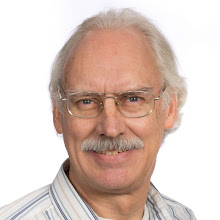From the settlement agreement:
Pilot Project to Provide Public Recreational Use of
Pepco Utility Corridors and to Enhance Utility Access to Facilities
27.
Certain parties have requested Pepco revisit its policy regarding access to its
facilities and foster the development of both paved and natural surface trails
open free-of-charge to non-motorized public use on its transmission corridors,
including to provide for nonmotorized transportation benefits. In response to
these requests, and in conjunction with work it has planned and that it intends
to perform on its transmission corridors, including its efforts to enhance
utility access to its facilities, Pepco agrees to coordinate with the Maryland
Department of Natural Resources (“DNR”), Montgomery County, Prince George’s
County and the Maryland - National Capital Park and Planning Commission (“M-NCPPC”)
to establish a pilot project in its Maryland service territory by which Pepco
will grant to an appropriate governmental or private entity in both Counties a limited,
non-exclusive license to access specified portions of Pepco’s transmission-line
property for recreational and transportation use by the public. Paths will
provide increased access to Pepco to its facilities along the transmission
corridor, therefore, Pepco will have access along any path to serve its
facilities. Permanent paths will provide for faster access for restoration of
lines damaged during storms and less impact on wetlands and streams since
pathways will be built to mitigate damage to sensitive areas. Pepco agrees to
work cooperatively with DNR, Montgomery County, Prince George’s County and
M-NCPPC to define the license terms. The first pilot project will be a combined
paved and natural surface trail system along the transmission corridor from
Westlake Drive near Montgomery Mall to the Soccerplex in Germantown (the “Bethesda-Dickerson
Corridor”). Within four months after Merger closing, Pepco will solicit the input
and work cooperatively with the DNR, Montgomery County, Prince George’s County,
M-NCPPC and other interested parties on the design of an unpaved trail in the portion
of the Bethesda-Dickerson Corridor between the Soccerplex and Quince Orchard Road
(the “Unpaved Trail”).
The terms
of the licenses for the pilot projects shall include, but are not limited to, the
following:
a.
Construction (e.g., access points and parking, standards, path material,
bridges, signs);
b.
Maintenance (including but not limited to responsibility for snow removal,
grass cutting, debris removal);
c. Times
of Use;
d.
Acceptable non-motorized uses, including pedestrians, dog walkers, runners, cyclists,
horseback riding;
e.
Monitoring acceptable use;
f.
Responsibility for handling complaints from adjoining landowners, including intake
and response;
g.
Liability and safety requirements;
h. Assurance
that Pepco’s access and use of its property and facilities located therein are
not limited in any way; and
i. Pepco
shall retain final approval regarding the location of the pilot project(s) and the
site of any future access, based upon factors such as safety, security, and Pepco’s
need to continue to provide safe and reliable electric service consistent with
its obligations to customers. Pepco will not forfeit or abridge its property rights
in any way.
Pepco, the
Counties, M-NCPPC and DNR will cooperate to gain approval of these trails and
to construct them in a way that reasonably minimizes the portion deemed to be impervious
surfaces in order to reduce the storm water retention requirements. Pepco will
seek recovery in regulated transmission and distribution rates of the costs
that it incurs in connection with the project. Pepco agrees to pay all
reasonable costs associated with the pilot project if it is able to obtain such
recovery in regulated rates. If Pepco is not able to obtain rate recovery of
the full amount of pilot project costs, it will work with the Counties, M-NCPPC
and DNR to reevaluate and appropriately limit the scope of the pilot project,
pay the costs of designing the Unpaved Trail, and cooperate to seek alternate
sources of funding to complete the pilot project.
Pepco
further agrees, following the implementation of the pilot project, to collect
lessons learned and identify criteria and conditions under which it would
consider future projects to allow access to its property for non-motorized
recreational and transportation use.
